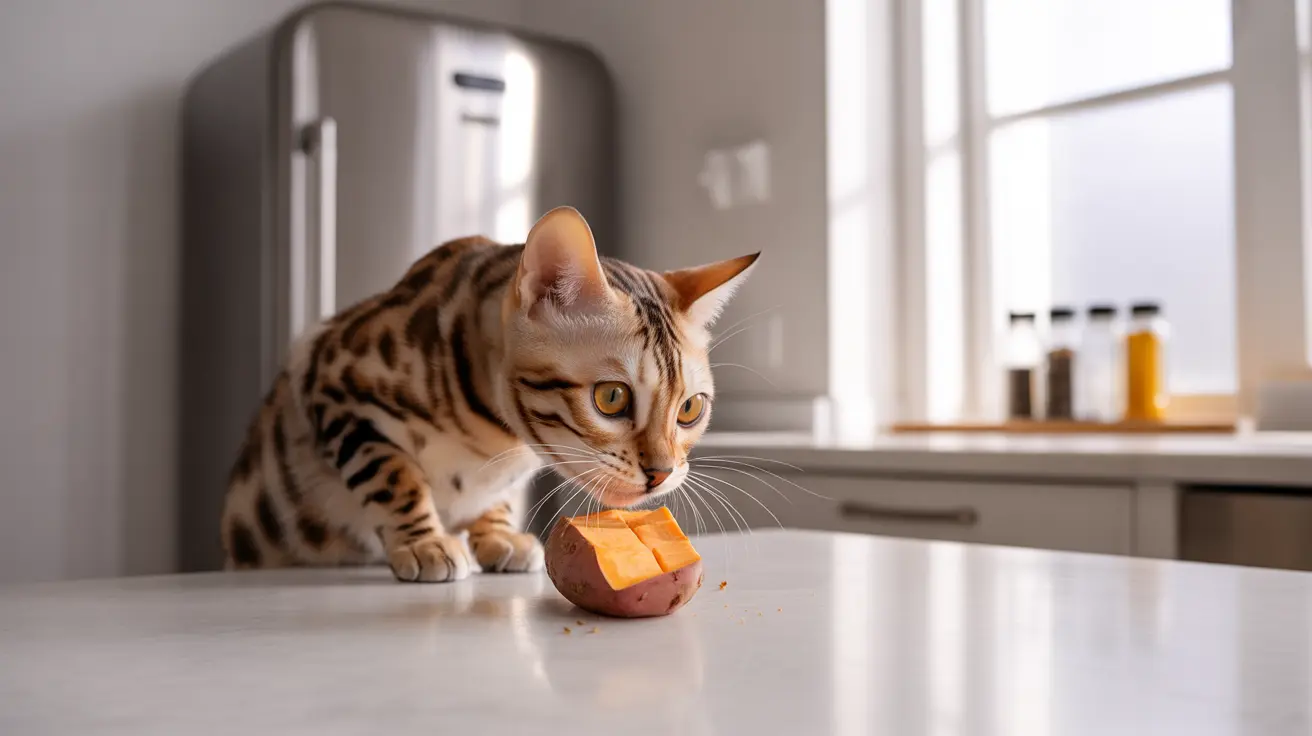If you're wondering whether cats can have sweet potato, you're not alone. While these orange tubers are often included in some commercial cat foods and are non-toxic to felines, there are important considerations regarding their safety, preparation, and nutritional value for our feline friends.
In this comprehensive guide, we'll explore everything you need to know about feeding sweet potatoes to cats, including proper preparation methods, potential risks, and nutritional implications for your pet's health.
Understanding Sweet Potatoes and Cats
Sweet potatoes are root vegetables packed with nutrients like fiber, vitamins A and B6, potassium, and antioxidants. However, cats are obligate carnivores, meaning their bodies are designed to derive nutrition primarily from animal-based proteins rather than plant matter.
While sweet potatoes aren't harmful to cats in small amounts, they shouldn't be considered a dietary staple or significant source of nutrition for your feline companion.
Safe Preparation Methods for Cats
If you decide to offer sweet potato to your cat, proper preparation is crucial for their safety:
- Always cook sweet potatoes thoroughly (boil, bake, or steam)
- Remove all skin before serving
- Serve plain without any seasonings, butter, or additives
- Cut into small, manageable pieces
- Offer only tiny portions as an occasional treat
Potential Health Benefits and Limitations
Sweet potatoes do contain some beneficial nutrients for cats, including:
- Dietary fiber for digestive health
- Beta-carotene (converted to vitamin A)
- Antioxidants that support overall health
However, cats have limited ability to process carbohydrates, and their digestive systems aren't designed to extract significant nutrition from plant-based foods. Any benefits from sweet potatoes are minimal compared to the nutrition they receive from proper cat food.
Risks and Warning Signs
While sweet potatoes aren't toxic, there are several risks to consider:
- Raw sweet potatoes can cause digestive upset
- Sweet potato vines and leaves can be toxic
- Excessive consumption may lead to:
- Gastrointestinal issues
- Weight gain
- Blood sugar fluctuations
Monitor your cat for any adverse reactions after introducing sweet potato, including vomiting, diarrhea, or changes in behavior.
Commercial Cat Food and Sweet Potatoes
Some commercial cat foods include sweet potatoes as a supplementary ingredient. These formulations are carefully balanced to ensure proper nutrition while using sweet potato primarily as a binding agent or fiber source. The amount of sweet potato in these products is typically minimal and safe for cats.
Frequently Asked Questions
Can cats safely eat sweet potatoes, and how should they be prepared?
Yes, cats can safely eat sweet potatoes when properly prepared. They should be thoroughly cooked, peeled, and served plain without any seasonings or additives. Only offer small amounts as an occasional treat.
Are sweet potatoes nutritious and beneficial for a cat's health?
While sweet potatoes contain some beneficial nutrients, they offer limited nutritional value for cats due to their carnivorous nature. Cats require primarily animal-based protein for optimal health.
Is it safe for cats to eat sweet potato skins or raw sweet potatoes?
No, cats should not eat sweet potato skins or raw sweet potatoes. Both can be difficult to digest and may cause gastrointestinal upset. Always serve only the cooked flesh of the sweet potato.
How much sweet potato can I give my cat without causing digestive or health issues?
Sweet potato should only be given in very small amounts - no more than a teaspoon at a time, and only occasionally. Too much can lead to digestive issues or weight gain.
Why do some commercial cat foods include sweet potatoes, and are they good for cats?
Commercial cat foods may include sweet potatoes as a source of fiber and as a binding agent. These products are formulated to ensure proper nutritional balance, with sweet potato playing only a minor role in the overall composition.
Conclusion
While cats can have sweet potato in moderation, it's important to remember that it should never replace their regular, meat-based diet. If you choose to offer sweet potato to your cat, do so sparingly and with proper preparation. Always consult with your veterinarian before making any significant changes to your cat's diet.






